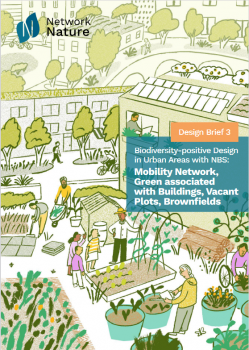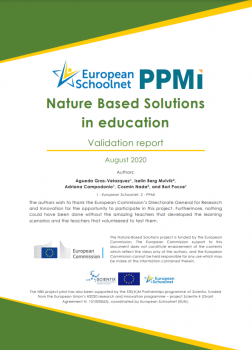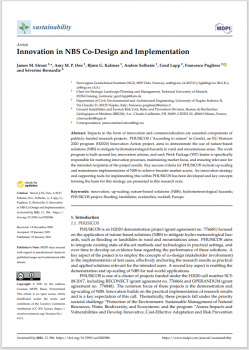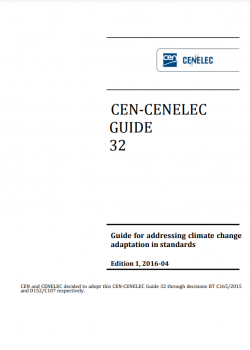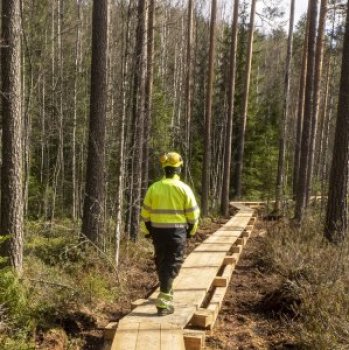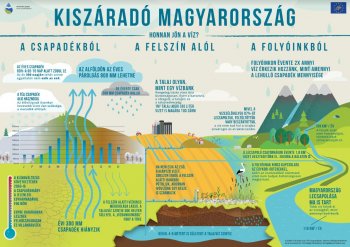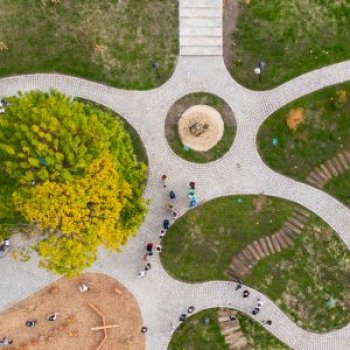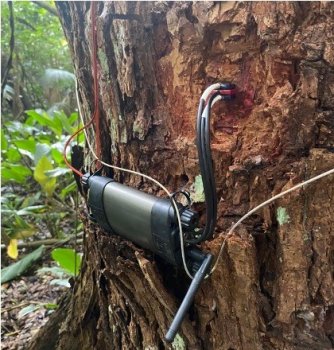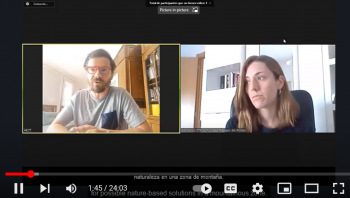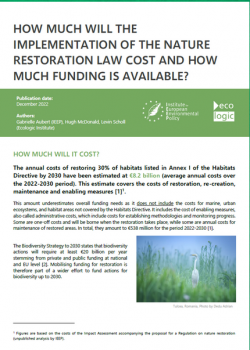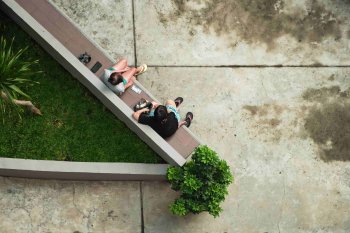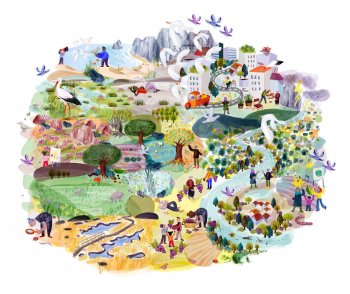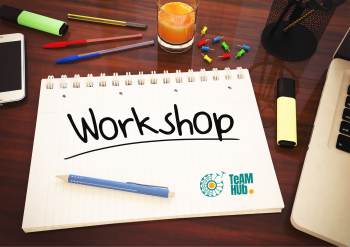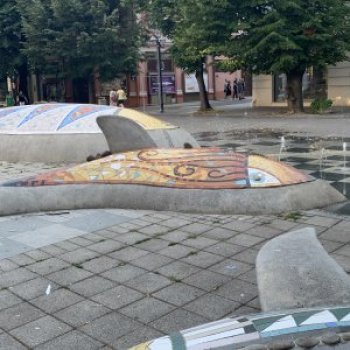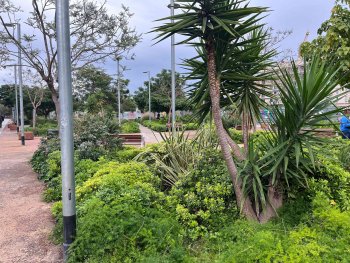Design Brief 3- Biodiversity-positive Design in Urban Areas with NbS: Mobility Network, Green associated with Buildings, Vacant Plots, Brownfields
This NetworkNature design brief series, the first of its kind, comprises three design briefs on biodiversity-positive design recommendations for urban and peri-urban areas with nature-based solutions. The series, developed with support of IFLA Europe, presents simple design suggestions for
Nature Based Solutions in education
Citizens and experts have identified better awareness of the opportunities, benefits, and limitations of nature-based solutions as one of the main factors that could facilitate the transition to more sustainable cities and territories. Nature-based Solutions (NbS) use nature and ecosystems to
Innovation in NbS Co-Desing and Implementation
Article published in Sustainability. From the published abstract: Impacts in the form of innovation and commercialization are essential components of publicly funded research projects. PHUSCOS ("According to Nature" in Greek), an EU Horizon 2020 Program (H2020) Innovation Action project
Guide for addressing climate change adaptation in standards
This Guide provides guidance on addressing aspects of climate change adaptation in European standardization documents. This Guide is applicable to product (including design), service, infrastructure and testing standards. For the purposes of this Guide, the definition of the term “product” has
Seedbed Intervention: Lahti
The City of Lahti’s seedbed intervention took place at the Lahti health forest (pilot area).There are discussions on connecting the pilot area with the nearby Likolampi route to increase the positive impacts on health and wellbeing. The nature reserve of Kintterö is located on the western side of
VÍZGAZDÁLKODÁS: Természetes vízmegtartó megoldások a települési klímaalkalmazkodásban
A 2018 és 2021 között megvalósult LIFE-MICACC projekt célja az önkormányzatok integráló és koordináló szerepének megerősítése az éghajlatváltozáshoz való alkalmazkodás érdekében, az alábbiakban közzétett tudásanyagok a projekt keretén belül készültek. Az anyagok első csoportja az önkormányzatoknak
Nature-based Placemaking in High-Density Cities
Ecostack Innovations has just released a new publication with recommendations for Nature-Based Placemaking in High-Density Cities. Through this document, they are sharing some of the learning experiences from the implementation of nature-based placemaking in high-density cities based on our work
CONEXUS Life-Lab factsheet series - Monitoring ecosystem services of urban forests in São Paulo, Brazil
Trees offer various ecosystem services that can significantly cool down and improve livability in cities. Through a deeper understanding of these contributions by studying native tree species in São Paulo, we aim to provide the municipality guidelines on vegetation structure and species composition
CONEXUS key learning factsheet series - Cost-benefit analysis (CBA) for valuing NbS in CONEXUS pilot projects
This factsheet summarizes the results of a Cost-Benefit Analysis (CBA) undertaken to evaluate the Social Return on Investment (SRI) through the Net Present Value (NPV) and Internal Rate of Return (IRR) of three CONEXUS pilot projects: the Urban Allotment Network (Barcelona, Spain), Francia Street
PHUSICOS : Santa Elena and Artouste
Presentación del estudio de caso PHUSICOS: Santa Elena y Artouste / Présentation de l'étude de cas PHUSICOS : Santa Elena et Artouste
INTERLACE MOOC on Nature-based Solutions: (4) SPATIAL PLANNING and prioritising NbS to address urban challenges
Urban areas across the globe are facing unprecedented challenges—pollution, climate change, urban sprawl—and traditional solutions are falling short. The INTERLACE project’s Massive Open Online Course showcases how nature-based solutions offer a promising approach to help create resilient,
- Document
Group Certification for Sustainable Forest Management: Promoting Shared Forest Management and Ecosystem Services Enhancement
This certification is proof of the possibility of overcoming territorial fragmentation for a common objective by uniting public and private forces.
How Much Will the Implementation of the Nature Restoration Law Cost and How Much Funding is Available?
The EU Commission published its proposal for a new Nature Restoration Regulation in June 2022. In this context, IEEP and Ecologic Institute – as part of the Think Sustainable Europe network – published a series of thematic policy briefs to inform Members of the European Parliament and other
Integration of NBS in local governance contexts and urbanisation trajectories in CONEXUS EU and CELAC cities. Evidence from Barcelona, Buenos, Aires, Bogotá, Lisbon, Santiago, São Paulo and Turin
The present report analyses the current state of integration in Nature-Based Solutions (NBS) governance and planning processes within and across scales and dimensions of all CONEXUS cities: Barcelona, Buenos, Aires, Bogotá, Lisbon, Santiago, São Paulo, and Turin. Different levels of cooperation
Climate crisis, cities, and health
More than ever, the climate crisis is becoming a health crisis. An estimated 5 million people globally die each year because of suboptimal temperatures,1 with a large proportion of heat-related mortality (37%) attributable to human-induced climate change.2 Cities have an important role in climate
Nature-based Solutions Made Easy
About this guide: Have you heard about nature-based solutions and want to know more? Then read on as NetworkNature helps you understand what nature-based solutions (NbS) are. You will also be able to identify those solutions that claim to be NbS but are not. We will introduce you to quality
ÁLTALÁNOS: TeAM HUb online Műhelytalálkozók szakmai anyagai
A TeAM HUb egy hiánypótló szakmai közösség, melynek célja a kormányzati, önkormányzati, szakmai és civil szereplők közötti párbeszéd és együttműködés ösztönzése a természetalapú megoldások széleskörű gyakorlati alkalmazása érdekében. E cél elérése érdekében 2023-ban online eseménysorozatot indult,
- Document
Assesing the efficiency of different prevention methods of pine pitch canker, and the creation of a manual with the good pratices to follow in plant nurseries
This project developed methods to prevent Fusarium circinatum spread in pine nurseries, including seed, container, and water disinfection techniques, and tested soil alternatives to pine bark for healthier plant growth.
Seedbed Intervention:Burgas
Burgas organised its seedbed intervention in close proximity to one of the two pilot areas. The green area between “Gurko“ parking lot and Oborishte street is the pilot site for the GoGreenRoutes project in Burgas. It is located in an area of the city centre which is heavily built with large and
Conexus Deliverable 4.3: Ecosystem of guidelines and decision-support tools to stimulate NbS co-creation
The CONEXUS project has meticulously curated this Ecosystem of Guidelines to effectively disseminate the rich insights and practical knowledge gained through the comprehensive and action-oriented work on nature-based solutions across Latin America and Europe. This collection of guiding resources is
- ‹ previous
- 5 of 20
- next ›

